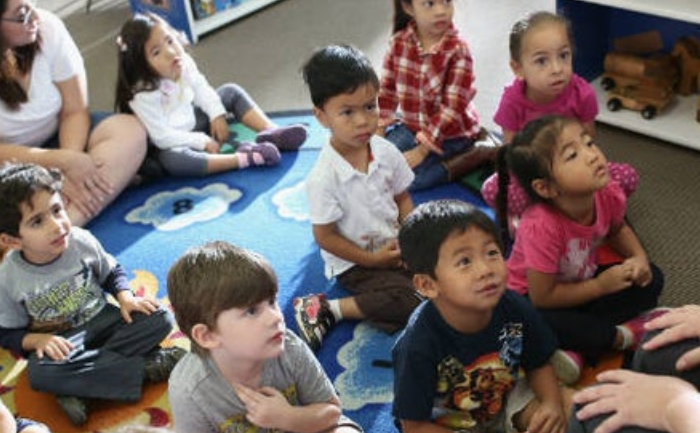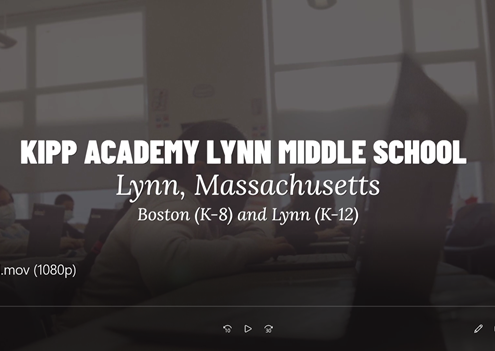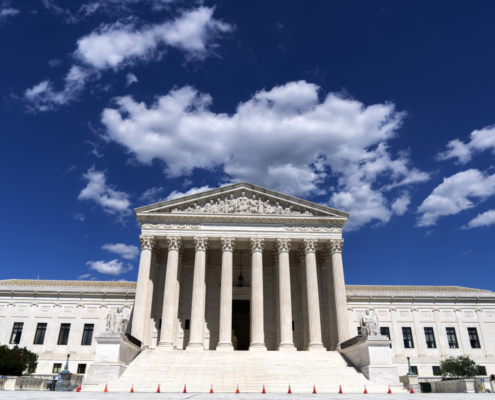The Supreme Court Is Set To Decide Whether Religious Kids Are Allowed A Good Education
This op-ed appeared in The Daily Caller on July 18, 2019.
Authors: Jamie Gass and Ben DeGrow
Late last month, the U.S. Supreme Court announced it would hear Espinoza v. Montana Department of Revenue, a case that will answer that question.
Kendra Espinoza, who suddenly became a single mom, sought a better education for her daughters. In their public schools, one daughter was bullied and the other struggled academically. Both would later thrive in parochial school.
After the Montana Supreme Court struck down her state’s education tax credit program, Espinoza was denied access to scholarships her children badly needed. The nation’s highest court has agreed to hear her request to weigh in.
Nationally, over 250,000 students benefit from private-school choice through education tax credits. The basis for the Montana court’s decision was the state’s 130-year-old anti-aid, or Blaine, amendment. The state constitutional provision in Montana, along with those in our respective states of Massachusetts and Michigan, represent formidable legacies of a dark, bigoted chapter of history that still limits educational opportunities for students and families who need them most.
The case offers the U.S. Supreme Court the opportunity to reject the last vestiges of 19th-century anti-Catholic legal discrimination that remain in nearly 40 states. Massachusetts has the oldest such amendment and Michigan has the most recent, but both are considered to be among the worst.
“The Irish are perhaps the only people in our history with the distinction of having a political party, the Know-Nothings, formed against them,” wrote John F. Kennedy in his 1958 book, “A Nation of Immigrants.”
In the mid-1850s, in the wake of Irish immigration, Massachusetts’ virulently anti-Catholic Know-Nothing party passed the nation’s first anti-aid amendment, which, along with a revised amendment added in the early 20th century, prohibits any governmental unit from disbursing public funds to parochial-school parents.
Today, these anti-aid amendments prevent more than 100,000 urban Bay State families with children in chronically underperforming districts from receiving education vouchers and tax credits that would grant them greater school choice.
In the late 19th century, President Ulysses S. Grant proposed an anti-aid amendment to the federal constitution. Maine Congressman James G. Blaine’s anti-aid bill followed, falling just short of congressional approval. Ultimately, his nativist scheming encouraged states to adopt anti-aid amendments in their own constitutions.
Michigan’s turn came nearly a century later, as then-Gov. William Milliken sought to direct state aid to private and religious schools. While Reformed and Lutheran leaders were among those seeking financial support, the ensuing backlash took full aim at the most prominent target. Resistance to the governor’s proposal, referred to as “parochiaid,” stoked the flames of bigotry. “I have never witnessed such anti-Catholic sentiment in my life,” one state senator observed.
Some of that sentiment carried over to a successful 1970 ballot initiative campaign. Advocates for church-state separation joined forces with teachers unions to prohibit both direct and indirect state support for families paying private school tuition. One pro-initiative brochure noted that the measure would overwhelmingly deny funds to “schools owned by the clergy of one politically active church.”
In the half-century since Michigan’s anti-aid initiative passed, about half the states — including some with less onerous Blaine amendments — have adopted some form of private school choice. Yet harmful constitutional language still denies many Massachusetts and Michigan families equal access to educational options aligned to the dictates of their consciences.
The U.S. Supreme Court has recognized that our Constitution’s First Amendment allows states to give families options between religious and nonreligious schools. Now the justices can take a close look at removing the legal barriers to school choice erected out of ancient animosities.
Removal of state amendments conceived in prejudice would allow state school funding to follow the student, as it does for higher education across America. All parents could then choose from a variety of private and parochial school options for their children.
Thanks to Kendra Espinoza, a determined Montana mom, the U.S. Supreme Court will take up and hopefully strike down the infamous legacy of state Know-Nothing and Blaine amendments. From Massachusetts to Michigan and across the nation, this case has the potential to overturn a century and a half of state constitutional discrimination against religious families and their quest for the most suitable and effective education for their children.
Jamie Gass is director of the Center for School Reform at Pioneer Institute, a Boston-based think tank, and Ben DeGrow is director of education policy at the Mackinac Center for Public Policy in Michigan.
Get Updates on Our School Choice Research
Related analysis:





















